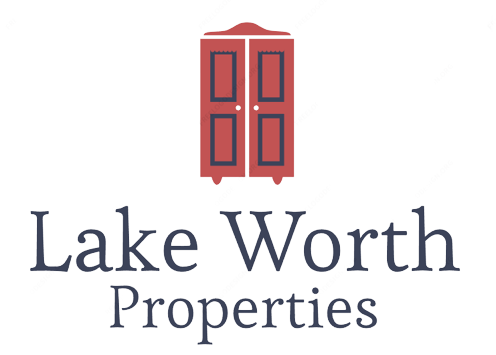
Understanding the South Florida Real Estate Market
South Florida, with its enticing blend of sun, sea, and the promise of a relaxing lifestyle, has seen a significant increase in real estate activity over the past decade. The market, characterized by dynamic trends, diverse price levels, and exciting growth prospects, offers lucrative opportunities for different types of home buyers, sellers, and renters.
One of the unique aspects of the South Florida real estate market is its inherent vibrancy and resilience. Even during periods of economic downturn, the region has displayed a remarkable capacity to bounce back, largely due to its attractive climate, international appeal, and diverse property options. As a potential investor, it’s essential to appreciate these underlying market dynamics, so let’s delve deeper into understanding how this market has evolved over time.
How Has the South Florida Real Estate Market Evolved Over Time?
Historically, the South Florida real estate market has experienced phases of robust growth followed by brief periods of stagnation and decline. Influenced by factors such as economic health, interest rates, and foreign investment, the market has nonetheless shown a steady upward trajectory. Particularly in the last decade, increased remote working trends, and demographic shifts have triggered a migration towards areas offering quality life and affordable housing, propelling South Florida to the forefront.
An Introduction to Various Investment Strategies in South Florida Real Estate
With a fundamental understanding of the South Florida real estate market in place, it’s time to explore investment strategies. An investment strategy in real estate refers to an investor’s planned approach to property investment to achieve specific financial goals. This involves considerations like budget, preferred property type, investment duration, and expected returns.
Different investors adopt different strategies based on their individual goals and risk tolerance. Let’s explore some common strategies used in the South Florida real estate market.
What Are Some Commonly Used Investment Strategies in the South Florida Real Estate Market?
From long-term rental investments to short-term vacation rentals, house flipping to commercial property investments, the strategies are varied and depend largely on the investor’s financial goals, risk appetite, and management capacity.
Long-term rental investments, for instance, involve purchasing a property and renting it out for a prolonged period, providing a steady monthly income. Vacation rentals, on the other hand, involve leasing out properties on a short-term basis to vacationers or tourists, often fetching higher returns but requiring more hands-on management.
Flipping houses entails purchasing underpriced properties, renovating them, and selling them for a profit. This strategy often involves more risk but can result in significant profit if executed well. Commercial real estate investment, involving office buildings, retail spaces, and industrial properties, is usually reserved for more seasoned investors due to the higher capital requirements and complexity.
Investment Strategies for Different Types of Buyers and Renters in South Florida
Having touched on various investment strategies, it’s important to note that these strategies are not one-size-fits-all. They need to be tailored to different types of buyers and renters in South Florida, including first-time home buyers, empty nesters, investors, relocating professionals, and vacation home buyers.
First-time homebuyers, for instance, might prioritize affordability and proximity to amenities. They could benefit from strategies focusing on up-and-coming neighborhoods with potential for price appreciation. On the other hand, empty nesters might be seeking to downsize and could look into retirement-friendly communities with suitable facilities and services.
How to Choose an Investment Strategy Based on Your Specific Situation?

Choosing an investment strategy that suits your specific situation is crucial. Here, you should consider factors like your budget, financial goals, risk tolerance, and personal preferences. For instance, if you have a high risk tolerance and hands-on approach, house flipping could be a viable option. Conversely, if you’re seeking steady, passive income, long-term rentals might be more fitting.
Strategies for Overcoming Challenges in South Florida Real Estate Investments
Like any investment, real estate in South Florida comes with its share of challenges. Market fluctuations, property maintenance, managing rentals, and understanding local laws and regulations can sometimes become daunting. However, by adopting effective strategies, you can mitigate risks and navigate these challenges.
What Are Some Strategies to Mitigate Risks Associated with South Florida Real Estate Investments?
Diversification is an effective way to mitigate investment risks. Instead of putting all your eggs in one basket, consider investing in different types of properties across various locations in South Florida. This could mean a mix of residential, commercial properties, or rentals across different neighborhoods.
Additionally, thorough research before investing is key. Understand the real estate laws, potential rental income, property condition, and neighborhood trends. Also, consider seeking professional help from real estate agents, financial advisors, and lawyers to help navigate complex processes.
Practical Steps for Implementing Investment Strategies in South Florida Real Estate
After determining your ideal investment strategy and understanding how to mitigate associated risks, the next step is implementation. This involves a series of practical steps, beginning from property selection to understanding local laws, securing financing, and maintaining your investment property.
How to Successfully Implement Your Selected Investment Strategy?
Successful implementation of your investment strategy involves several key elements. Firstly, selecting the right property is critical. Look for properties that align with your budget, goals, and preferred investment strategy.
Next, securing financing is a critical step. From traditional mortgages to real estate crowdfunding, explore the financing options that suit your financial situation15. Furthermore, understand and comply with all local laws and regulations associated with property investment and rentals.
Networking with local real estate professionals, negotiating deals effectively, and considering all legal aspects are equally important for successful investment implementation. Finally, remember that real estate is a long-term investment. Patience, perseverance, and flexibility can go a long way in ensuring a profitable and satisfying investment journey in the South Florida real estate market.
